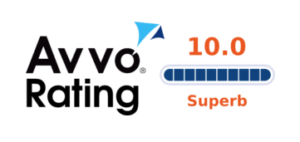



Understanding The Standard Denial Process
 The Standard Insurance Company founded several years, has grown to become a significant name in the United States insurance landscape. With roots in Portland, Oregon, The Standard has expanded its offerings to cover a wide range of people, ensuring their financial security in times of need. However, as with many insurance behemoths, navigating the complexities of claims, particularly when faced with a denial, can be a difficult task for the average policyholder. This article delves into the reasons for The Standard company’s denial and emphasizes the importance of seeking professional help in such situations.
The Standard Insurance Company founded several years, has grown to become a significant name in the United States insurance landscape. With roots in Portland, Oregon, The Standard has expanded its offerings to cover a wide range of people, ensuring their financial security in times of need. However, as with many insurance behemoths, navigating the complexities of claims, particularly when faced with a denial, can be a difficult task for the average policyholder. This article delves into the reasons for The Standard company’s denial and emphasizes the importance of seeking professional help in such situations.
Surveillance and Social Media: In the digital age, insurance companies, including The Standard, might monitor a claimant’s social media activities or even employ surveillance to ensure the legitimacy of a claim. A simple post or photo can be misconstrued, leading to denials.
Why Claims Get Denied by The Standard
While The Standard boasts a comprehensive range of insurance products, policyholders often find themselves perplexed when their claims are denied. Several reasons contribute to these denials
- Insufficient Evidence: One of the primary reasons claims are rejected is due to a lack of adequate evidence or medical records that substantiate the claimant’s disability or condition.
- Missed Deadlines: The insurance world is stringent about timelines. Missing a deadline, no matter how trivial it might seem, can lead to an immediate denial.
- Changes in Disability Definition: Throughout a policy, the definition of disability might shift, catching policyholders off guard. For instance, a policy might initially require the claimant to be unable to perform tasks specific to their occupation. However, this could later change to a broader definition, encompassing any occupation, making it harder to qualify for benefits.
Meet Our Disability Attorneys
Frank N. Darras, Founding Partner
- Experience: Over 30 years exclusively focused on LTD/long-term care insurance litigation.
- Track Record: Nearly $1 billion recovered for policyholders.
- Awards & Recognition:
- Named to Lawdragon’s Top 500 Lawyers in America for 18 years
- AV-Preeminent® (Martindale-Hubbell), Best Lawyers in America since 2006
- Frequent speaker and author on ERISA and disability insurance.
Susan B. Grabarsky, Senior Trial Attorney
- Represents both individual policyholders and groups in disability insurance disputes.
- Former cost-containment analyst for insurers—uses insider knowledge to challenge denials.
Heather Gardner, Senior Associate
- Specializes in individual and ERISA disability legal appeals.
- Works directly with Dr. Darras on complex cases
Phillip S. Bather, Associate Attorney
- Expert in bad-faith and ERISA disability cases.
- Conducts client intake and prepares administrative appeals
The Importance of an Attorney’s Assistance
Facing a denial can be disheartening, especially when the reasons seem convoluted or unjust. This is where the expertise of an attorney becomes invaluable. Legal professionals, well-versed in the nuances of insurance law, can provide clarity, ensuring that claimants understand the reasons behind their denial. Moreover, they can guide individuals through the appeal process, strengthening the claim with additional evidence, expert testimonies, and strategic insights. Given the complexities of insurance policies and the tactics employed by insurance giants like The Standard, having an attorney by one’s side can be the difference between a continued denial and a successful reversal.
Real Results for Real Clients
- Chronic Migraine Appeal – 2024
We reverse Standard’s initial denial via compelling vocational and medical evidence; benefits approved internally. - Fibromyalgia – 2022
52-year-old engineer denied benefits—secured over $300,000 in retroactive payments after targeted medical and vocational submissions. - Degenerative Disc Disease – 2021
Obtained fast approval using biomechanics expert testimony and high-resolution imaging.
Case Summary: The Standard Disability Denial Reversed
The case involves a client who was a managing director of a tax department, a cognitively demanding role requiring precision with financial data. He purchased an individual disability policy through an agent with Standard Insurance, independent of his employer, and paid the premiums himself. Individual policies typically have a lower denial rate compared to employer-provided group policies due to differing legal frameworks, but his claim was denied upon initial application. His disability stemmed from a January 2022 COVID-19 infection that exacerbated or triggered multiple conditions, including chronic fatigue syndrome, fibromyalgia, ADHD, insomnia, and other sleep issues. These conditions progressively worsened, making it impossible for him to continue working.
Read Full Case Summary Here...
The case involves a client who was a managing director of a tax department, a cognitively demanding role requiring precision with financial data. He purchased an individual disability policy through an agent with Standard Insurance, independent of his employer, and paid the premiums himself. Individual policies typically have a lower denial rate compared to employer-provided group policies due to differing legal frameworks, but his claim was denied upon initial application. His disability stemmed from a January 2022 COVID-19 infection that exacerbated or triggered multiple conditions, including chronic fatigue syndrome, fibromyalgia, ADHD, insomnia, and other sleep issues. These conditions progressively worsened, making it impossible for him to continue working.
Standard Insurance conducted a thorough review, more comprehensive than many larger insurers, including a two-day Independent Medical Examination (IME) with a neuropsychologist and file reviews by a rheumatologist and an internal medicine doctor. The neuropsychologist questioned the validity, effort, and consistency of the client’s performance, suggesting the results were unreliable. The file reviews challenged the chronic fatigue syndrome diagnosis, asserting there was insufficient evidence to support his subjective complaints, leading to the denial of his claim.
Attorney Stephen Jessup developed a strategic appeal to overturn the denial, focusing on objectifying the client’s subjective symptoms. Key steps included:
- Obtaining Standard’s complete claim file, including all review reports, which, while not legally required for individual policies, Standard provided, allowing a detailed analysis of their rationale.
- Arranging a Functional Capacity Evaluation (FCE) to assess the client’s ability to perform sedentary work, the physical baseline for his job. Jessup instructed the client not to rest before the exam to reflect his typical condition at the end of a workweek. The FCE revealed significant fatigue, supported by biometric data like heart rate and breathing, confirming he lacked the capacity for full-time sedentary work.
- Challenging the neuropsychologist’s IME report by providing research and reports demonstrating that chronic fatigue syndrome does not typically present with a neurological basis, countering the reviewer’s attempt to frame it as a neurological condition. Jessup also highlighted inaccuracies, such as the neuropsychologist’s claim that ADHD was not documented, when it was present in the medical records.
- Undermining the peer reviews by referencing CDC criteria for chronic fatigue syndrome, showing the client’s medical records met these standards, thus validating the diagnosis.
- Securing strong support from the client’s treating physician in Idaho, who provided detailed statements and forms refuting Standard’s dismissal of the diagnosis and symptoms.
The appeal emphasized the cognitive demands of the client’s tax director role, arguing that even if he could manage activities of daily living, the mental rigor required for his job was unattainable given his fatigue and concentration issues. Jessup’s comprehensive approach, combining the FCE, medical research, physician support, and direct challenges to the IME and peer reviews, convinced Standard to reverse the denial. The client received a back payment for benefits owed and had his benefits reinstated.
The attorneys noted that Standard’s thorough initial review, including an IME, made the appeal more challenging, as the company had a seemingly rational basis for denial. However, the victory demonstrates that Standard can be persuaded to reverse denials when presented with robust, objective evidence tailored to the claim. This case offers hope for claimants with subjective conditions like chronic fatigue syndrome, particularly when exacerbated by long COVID, showing that well-crafted appeals can succeed even against rigorous insurers. Jessup will continue to manage the claim, ensuring updated medical records and physician statements to prevent future denials, especially given the high cognitive demands of the client’s occupation.
Navigating the Appeal Process
When faced with The Standard denial, it’s essential not to lose hope. The appeal process offers a second chance for claimants to present their case, albeit with a more robust set of evidence and arguments.
Steps to Strengthen Your Appeal
- Gathering Comprehensive Medical Evidence: It’s crucial to ensure that all medical records, reports, and testimonies are up-to-date and comprehensive. This might involve seeking additional tests or expert opinions to solidify the claim.
- Engaging Vocational Experts: These experts can provide insights into the claimant’s ability to work, considering their skills, education, and experience. Their testimonies can be pivotal in cases where the definition of disability is under scrutiny.
- Reports from Treating Physicians: Often, insurance companies rely on their in-house medical experts, who might not have a comprehensive understanding of the claimant’s condition. Reports from treating physicians, who have a long-standing relationship with the claimant, can offer a more accurate representation of the disability.
- Personal Testimonies: Statements from friends, family, and colleagues can provide a holistic view of the claimant’s daily challenges, further strengthening the appeal.
The Pitfalls to Avoid
- Overlooking Partnerships: It’s essential to be aware of The Standard’s affiliations, such as with Minnesota Mutual Life Insurance Company. Any correspondence, even if it bears a different company’s logo, should be treated with utmost importance.
- Missing Appeal Deadlines: Just as with the initial claim, the appeal process also has strict timelines. It’s crucial to adhere to these to avoid automatic denials.
The Value of Professional Guidance
While it is possible to navigate the appeals process on your own, the assistance of an attorney can significantly improve your chances of success. They can identify potential stumbling blocks, ensure that all evidence is effectively presented, and negotiate with the insurance company on the claimant’s behalf. Furthermore, if the appeal is denied, attorneys can guide claimants through potential litigation, ensuring their rights are protected at all times.
While The Standard company denial can be a difficult hurdle to overcome, with the right approach and professional guidance, it is possible to navigate the complexities and secure the benefits owed to the claimant.
Disclaimer: This page is for informational purposes only and does not constitute legal advice. Every claim is unique. Prior outcomes do not guarantee future results. For advice specific to your situation, consult with a licensed attorney.
Frequently Asked Questions (FAQs)
How do I understand the denial letter from The Standard?
The denial letter will list specific reasons your claim was rejected—such as lack of documentation, policy definition issues, or doctors’ evaluations. Reviewing each point carefully is essential so you can target them directly in your appeal.
Am I still eligible if I’ve missed a deadline after The Standard denied my claim?
It depends on your policy. Many denial letters and LTD policies include strict deadlines (often 30-180 days) for appeals. Missing them can severely limit or eliminate your ability to continue the appeals or pursue legal action.
What evidence does The Standard consider when reviewing a denial appeal?
They will look for updated medical records, treating physician statements, test/imaging results, and documentation of how your condition limits your work and daily life. Also helpful are statements from family, co-workers, or expert opinions.
If my first appeal is denied by The Standard, what are my options?
You can submit a higher‐level internal appeal if your policy allows, file a complaint with your state’s insurance regulator, or potentially bring a lawsuit. Whether you sue depends on whether your plan is governed by ERISA or by state law.
Does having an ERISA plan change how I handle a denial by The Standard?
Yes. ERISA plans require you to follow the administrative appeals process and often restrict the evidence you can use in court to what was submitted during appeals. Courts usually review only the “record” under ERISA. Understanding those rules is crucial.
How much does it cost to hire a lawyer to challenge a denial from The Standard?
Many disability/insurance lawyers work on a contingency basis, meaning you don’t pay unless you win or settle. Upfront costs are typically minimal or zero, though you’ll want to clarify the fee structure and any potential out-of-pocket expenses.
How likely am I to succeed in reversing The Standard’s denial?
Your chance improves significantly if you have thorough medical records, clearly documented limitations during work/daily life, and if you directly address each reason given in the denial. Having legal help can also make a major difference.
What are the most common reasons The Standard denies long-term disability benefits even after an appeal?
Even after an appeal, The Standard may argue that medical evidence doesn’t prove you’re unable to work, that you can perform another job, or that your condition falls under policy exclusions. This is why presenting strong, targeted evidence at every stage is critical.
Why should I consider hiring an attorney after The Standard denies my claim?
A lawyer experienced in long-term disability denials can review your policy, pinpoint weaknesses in The Standard’s reasoning, gather expert evidence, and ensure all deadlines and ERISA requirements are met. They help level the playing field against a powerful insurer.






